High-Level Policy Session 11: Knowledge Societies, Capacity Building and e-learning / ICT Applications and Services
WSIS
Session 352
Knowledge Societies, Capacity Building and e-Learning
Each person should have the opportunity to acquire the necessary skills and knowledge in order to understand, participate actively in, and benefit fully from, the Information Society and the knowledge economy. Literacy and universal primary education are key factors for building a fully inclusive information society, paying particular attention to the special needs of girls and women. Given the wide range of ICT and information specialists required at all levels, building institutional capacity deserves special attention.
The use of ICTs in all stages of education, training and human resource development should be promoted, taking into account the special needs of persons with disabilities and disadvantaged and vulnerable groups.
Content creators, publishers, and producers, as well as teachers, trainers, archivists, librarians and learners, should play an active role in promoting the Information Society, particularly in the Least Developed Countries.
To achieve a sustainable development of the Information Society, national capability in ICT research and development should be enhanced. Furthermore, partnerships, in particular between and among developed and developing countries, including countries with economies in transition, in research and development, technology transfer, manufacturing and utilization of ICT products and services are crucial for promoting capacity building and global participation in the Information Society. The manufacture of ICTs presents a significant opportunity for creation of wealth.
The attainment of our shared aspirations, in particular for developing countries and countries with economies in transition, to become fully-fledged members of the Information Society, and their positive integration into the knowledge economy, depends largely on increased capacity building in the areas of education, technology know-how and access to information, which are major factors in determining development and competitiveness.
Geneva Declaration of Principles, WSIS 2003, https://www.itu.int/net/wsis/docs/geneva/official/dop.html
ICT applications and services
"The usage and deployment of ICTs should seek to create benefits in all aspects of our daily life. ICT applications are potentially important in government operations and services, health care and health information, education and training, employment, job creation, business, agriculture, transport, protection of environment and management of natural resources, disaster prevention, and culture, and to promote eradication of poverty and other agreed development goals. ICTs should also contribute to sustainable production and consumption patterns and reduce traditional barriers, providing an opportunity for all to access local and global markets in a more equitable manner. Applications should be user-friendly, accessible to all, affordable, adapted to local needs in languages and cultures, and support sustainable development. To this effect, local authorities should play a major role in the provision of ICT services for the benefit of their populations."
Geneva Declaration of Principles, https://www.itu.int/net/wsis/docs/geneva/official/dop.html
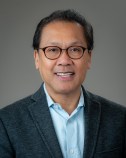
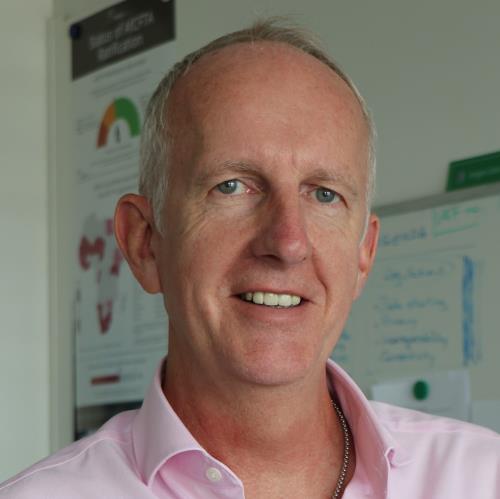.jpg?maxwidth=500)

Wilfredo González Vidal is the First Deputy Minister of the Ministry of Communications of the Republic of Cuba. Previously he was Vice Minister of the Ministry of Communications and Vice President of Information Technologies at the Telecommunications Company of Cuba S. A. (ETECSA). He was the Coordinator of the interministerial working group for the analysis and proposal of the Comprehensive Policy for the improvement of the Computerization of society in Cuba. Besides, he has coordinated several working groups associated with the computerization process of the country in the period 2013 – 2018. He chaired the Cuban delegation in the WSIS Forum, held in Geneva, Switzerland, in 2014, 2015 and 2017. He also headed the Cuban delegation at the Plenipotentiary Conference held in 2018 and 2022. He obtained in 2014 the Diploma of Public Administration at the Higher School of Cadres of the State and the Government of Cuba, and the Security and national defense Diploma at the National Defense College in 2019. In 1998 he received the degree of Enginner in Automation from the Higher Polytechnic Institute "José Antonio Echevarría" in Havana.
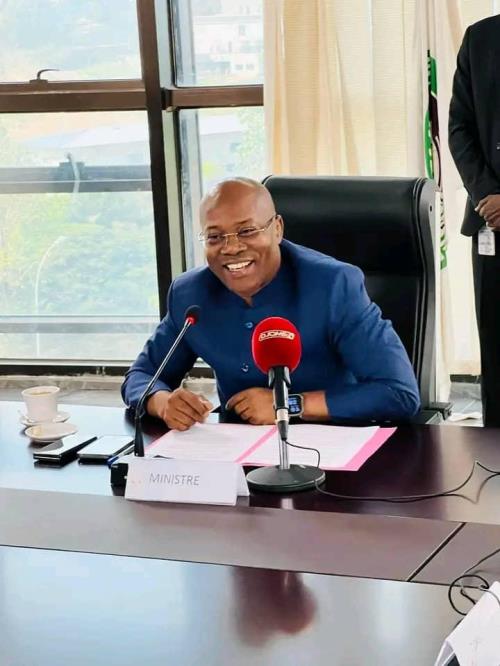
Ousmane Gaoual Diallo, de son vrai nom Ousmane Diallo, né en 1968 à Labé, est un ancien lutteur, député et homme politique guinéen.
Il est le porte parole du gouvernement et Ministre des Postes, des télécommunications et de l'économie numérique depuis le 20 août 2022 dans le Gouvernement Bernard Goumou.
Originaire de Gaoual, il est issu d'une famille de huit enfants. Sa mère est enseignante et son père ingénieur. Il commence ses études à l’école primaire Alpha Yaya Diallo.
Après le primaire et une partie du collège au Foutah, il rejoint Conakry où il termine son collège et lycée.
Admis à l’université de Conakry, il suit des cours en sciences mathématiques et en sciences économiques pendant deux ans, avant d’aller en France. Il y poursuit ses études universitaires qui le conduisent ensuite à l'université de Cambridge, au HEC Montréal du Canada et aux États-Unis.
Il entre à l'Université International Collège (UNC), où il obtient une licence en informatique de gestion
Il commence son engagement politique au sein du Parti guinéen du progrès (PGP) d'Elhadj Alpha Abdoulaye Portos Diallo. Le PGP étant proche de l'UFDG de Cellou Dalein Diallo, il finit par intégrer en 2005 leur équipe chargée des questions électorales.
Député à l'Assemblée nationale de 2013 en 2020, il est le coordinateur de la cellule de communication de l'UFDG.
Le 1er juillet 2022, il sera exclue de son partie politique UFDG
Depuis le 4 novembre 2021, il est nommé Ministre de l’Urbanisme et de l’Habitat dans le gouvernement Mohamed Béavogui6,7.
Le 20 aout 2022, il change de fonction pour devenir Ministre des Postes, des Télécommunications et de l’Économie numérique
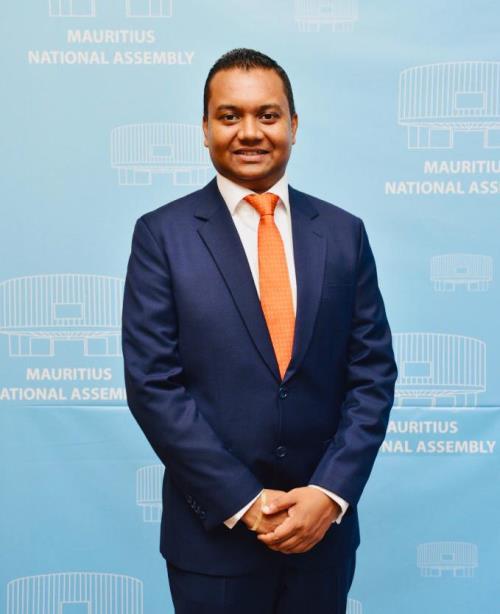
Honourable Deepak Balgobin is an elected member of the constituency No. 9 (Flacq/Bon Accueil) following the general elections held on the 7th November 2019. He is currently the Minister of Information Technology, Communication and Innovation.
Hon. Deepak Balgobin holds an MBA from Anglia Ruskin University, UK, a BSc (Hons) Tourism and Hospitality Management at the University of Technology, Mauritius and a Diploma in Hotel Management at Shatec, Singapore.
Prior to being Minister of ICT, he held key positions in different organisations in the public as well as the private sector including chairman of the Mauritius Housing Company (MHC), director of the National Productivity and Competitiveness Council (NPCC) and a fruitful career in Tourism and Hospitality Management as director of Human Resources both locally and abroad.
As a young Member of Parliament, Deepak Balgobin is also a strong advocate for community awareness. Born in Mare la Chaux, he dedicates most of his time in his constituency, while being active in social and cultural activities, and he is committed to work for a better Mauritius.
The Minister is also a sports fan, in particular football. He speaks fluently Kreol Morisien, English, French, Hindi and Bhojpuri.
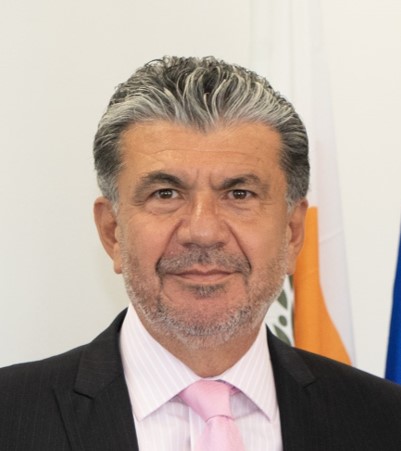
Dr Stelios Himonas is the Permanent Secretary of the Deputy Ministry of Research, Innovation and Digital Policy.
He previously served as Permanent Secretary of the Ministry of Justice and Public Order, as well as Director of the Department of Electronic Communications and Director of Telecommunications at the Ministry of Communications and Works.
From 2012 onwards, he has been appointed from the Council of Ministers as Digital Champion of the Republic of Cyprus, while having previously served as member of the Board of Directors of the Research and Innovation Foundation (then called Research Promotion Foundation), and the Cyprus Telecommunications Authority (Cyta).
At European level, he served as Vice-Chairman of the Electronic Communications Committee (ECC) of the European Conference of Postal and Telecommunications Administrations (CEPT), as well as Chairman of the Regulatory Affairs Working Group (WGRA) of the CEPT/ECC.
He is a holder of Bachelor of Engineering, Master of Science and PhD in Electrical Engineering from the State University of New York in Stony Brook. From 1989 until 1997, he was an Associate Professor at the Department of Electrical Engineering at the New York Institute of Technology, USA, having also served as a Professor of Engineering and Informatics of Intercollege, Cyprus. From 1994 until 1997, he was collaborating with the Multimedia Communications Research Group of Bellcore’s Applied Research Division in Morristown, New Jersey, USA. Dr Himonas has published numerous research papers in scientific journals and conference proceedings in the fields of detection and multimedia communications.
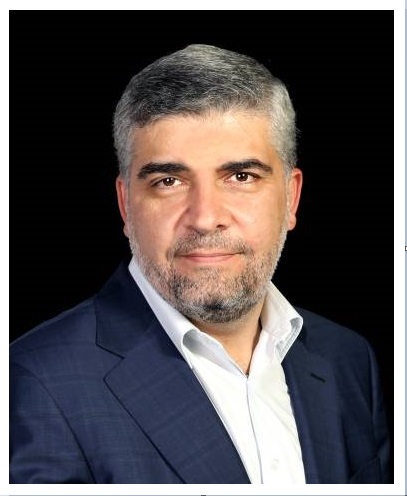
Mohammad Khansari is Deputy of ICT Minister and Head of Information Technology Organization of Iran (ITO). He received his B.S, M.S and PhD degrees in Computer Engineering all from Sharif University of Technology, in 1996, 1998 and 2008 respectively. He had a short-time research fellowship from DAAD, Germany at Fraunhofer research institute. He served as a faculty member of Sharif International Campus, Kish Island; and director of IT and Cyberspace Center of University of Tehran. He was director of ICT Research Institute of Iran (ITRC) from 2013 to 2019. He is Associate Professor of University of Tehran; and has served as Deputy Minister of ICT and Head of Information Technology of Iran from 2021.
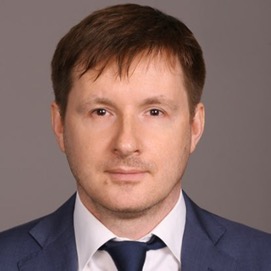
Dmitri Oguriayev was born on August 25, 1976 in Korolev, Moscow Region.
In 1998 he graduated from Lomonosov Moscow State University with a degree in computational mathematics and cybernetics. Four years later he completed postgraduate studies in Plekhanov Russian University of Economics obtaining a degree in mathematical methods in economics.
From 1998 to 2004 he held various positions in the companies engaged in the investment sector.
From 2004 to 2006 he worked in Citibank Group. In 2006 he received an MBA degree after completing his studies in the American Institute of Business and Economics.
From 2006 to 2011 Dmitri Oguriayev held various senior positions in the retail division of Raiffeisenbank.
From 2011 to 2020 he headed various retail divisions of Sberbank.
Dmitri Oguriayev’s contribution as an expert to the development of state reforms was awarded with the commendation of the President of the Russian Federation.
In 2018 he became a prizewinner of the contest «Leaders of Russia».
On August 1, 2020 he was appointed Deputy Minister of Digital Development, Communications and Mass Media of the Russian Federation.
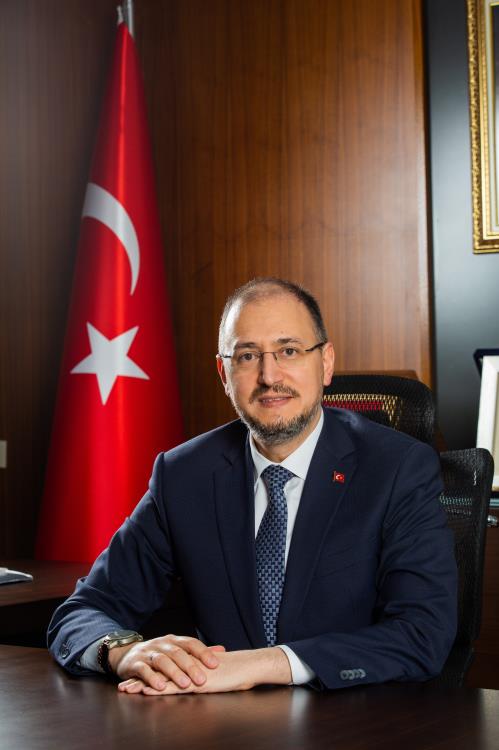
Mr. Ömer Abdullah Karagözoğlu is the Chairman of the Board and President of the Information and Communication Technologies Authority (BTK) of the Republic of Türkiye since August 13, 2018.
He was born in Glasgow, Scotland in 1975. He is an Electrical and Electronic Engineer graduated from Eastern Mediterranean University.
Mr. Karagözoğlu worked as a software engineer at Istanbul Water and Sewerage Administration (İSKİ) of Istanbul Metropolitan Municipality (IMM) from 2002 to 2004. Between 2002 and 2016, he held various managerial positions at BELBIM, a technology company of IMM.
He served as the Adviser to the Chairman and Board Member of the BTK from 2016 to August 13, 2018

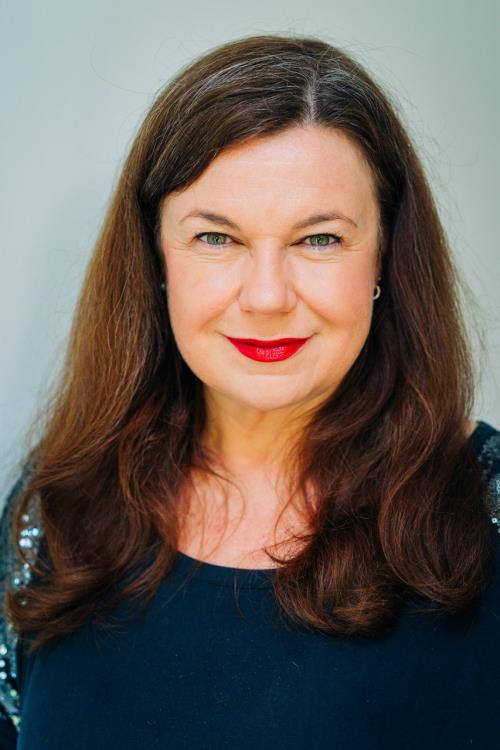
Amanda Brock is CEO of OpenUK the UK organisation for the business of Open Technology – open source software, open hardware and open data - with a purpose of UK Leadership and International Collaboration in Open Technology and the Executive Producer of State of Open Con.
She is a Board Member of the Open Source Initiative; appointed member of the Cabinet Office's Open Standards Board; Member of the British Computer Society Inaugural Influence Board; Advisory Board Member, KDE, Planet Crust, Sustainable Digital Infrastructure Alliance and Mimoto; Charity Trustee Creative Crieff and GeekZone; and European Representative of the Open Invention Network.
A lawyer of 25 years’ experience, she previously chaired the Open Source and IP Advisory Group of the United Nations Technology Innovation Labs, sat on the OASIS Open Projects and UK Government Energy Sector Digitalisation Task Force Advisory Boards. She was General Counsel of Canonical for 5 years from 2008 and set up their legal function.
Amanda was awarded the Lifetime Achievement Award in the Women, Influence & Power in Law Awards UK 2022, and included in Computer Weekly’s Most Influential Women in Tech Long list in 2021 and 2022 and in their UK Tech50 Influencers longlist for 2022. She was included in the 2022 https://heroes.involverolemodels.org/ Involve HERoes list of 100 global women executives driving change by example.
She is the editor of Open Source Law, Policy and Practice (2nd edition) published by Oxford University Press in October 2022, with open access thanks to the Vietsch Foundation.
-
 C3. Access to information and knowledge
C3. Access to information and knowledge
-
 C4. Capacity building
C4. Capacity building
-
 C7. ICT applications: benefits in all aspects of life — E-government
C7. ICT applications: benefits in all aspects of life — E-government
-
 Goal 1: End poverty in all its forms everywhere
Goal 1: End poverty in all its forms everywhere
-
 Goal 3: Ensure healthy lives and promote well-being for all
Goal 3: Ensure healthy lives and promote well-being for all
-
 Goal 5: Achieve gender equality and empower all women and girls
Goal 5: Achieve gender equality and empower all women and girls
-
 Goal 8: Promote inclusive and sustainable economic growth, employment and decent work for all
Goal 8: Promote inclusive and sustainable economic growth, employment and decent work for all
-
 Goal 10: Reduce inequality within and among countries
Goal 10: Reduce inequality within and among countries
-
 Goal 16: Promote just, peaceful and inclusive societies
Goal 16: Promote just, peaceful and inclusive societies